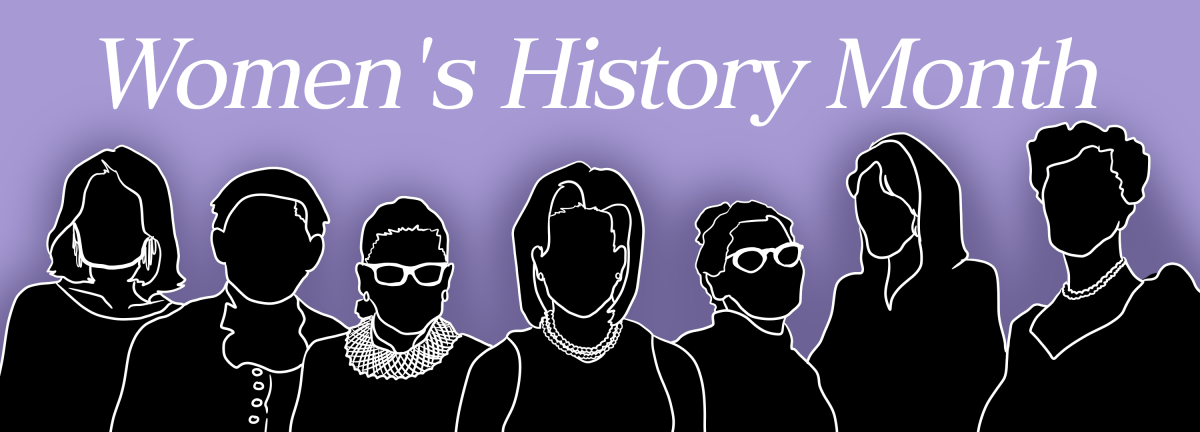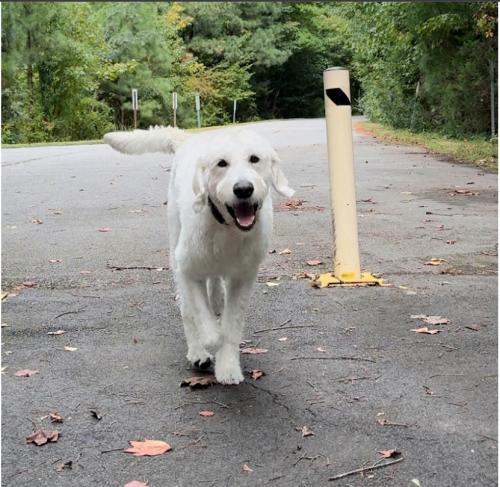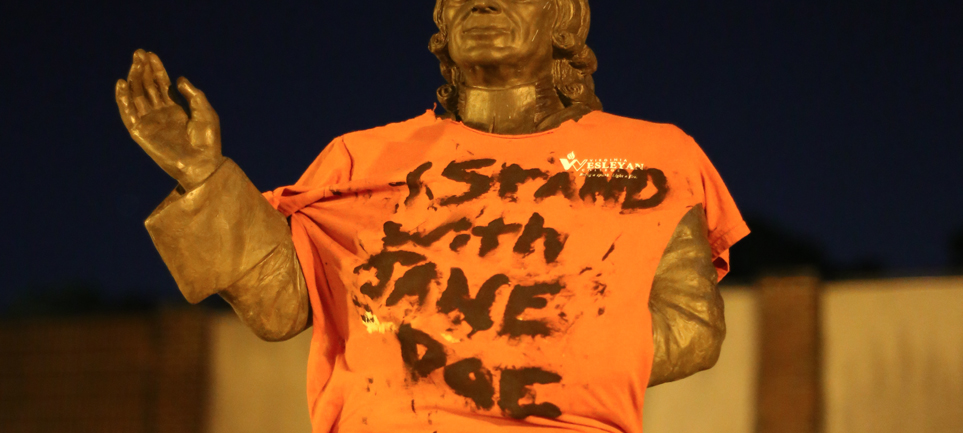Featured Image: Mel Lhuillier | Marlin Chronicle
The beginning of March officially marks Women’s History Month, where women’s history is recognized and celebrated.
Historian and professor of history at VWU, Dr. Sara Sewell, is committed to spreading awareness about Women’s History Month.
“Women’s History Month, and international women’s history, or International Women’s Day, they go hand in hand. They’re both events about recognizing the contributions of women in society and advancing equality for women, which I really believe is about human rights,” Sewell said.
Sewell discussed the history of Women’s History Month and the movement of female appreciation in history.
“First it was a week that the United States recognized as a way to put women on the agenda. So before the 1970’s, if you were to look at history books, very few even mentioned women. It was kind of a great white man’s history,” Sewell said.
Sewell also brought up the idea of how women’s appreciation isn’t only about women’s rights, but also human rights and how the betterment of women’s rights is beneficial for human rights as a whole. “It’s not only about women, because anytime we advance any one group or one person’s right, we advance all of our rights,” Sewell said.
This sentiment resonated with freshman Kaza Dayton, who specifically noted this point in Sewell’s lecture. Dayton, who majors in Hispanic Studies and Education, also said, “As a future educator, I thought it was really interesting to hear about how women’s access to education has evolved.”
Sewell spoke on the lack of coverage of not only women but other marginalized groups throughout history, recognizing that one group can potentially lead to other groups being recognized as well.
“What happened in the 1970’s is that there was a big change in historical analysis. And all of a sudden, lots of groups of people said, ‘Hey, we are not in your history books.’ This is true for women, African Americans, Native Americans and so on and so forth,” Sewell said.
Sewell noted that some courses on campus teach students about women’s history and rights across multiple cultural perspectives.
“We offer courses that you can do a lot deeper analysis about women’s history,” Sewell said. Within the history department, she mentioned women’s courses that are specific to U.S. history and European history. Sewell said she will be teaching a women’s history course in the Fall 2023.
She spoke on how courses can sometimes extend beyond women’s studies to more comprehensive gender studies.
As an example, Sewell said that she is currently teaching a course called “Love, Family and Marriage.”
“We have morphed into something that we call gender history. So certainly my ‘Love, Family and Marriage’ course treats more than just women and wives and daughters. We also talk an awful lot about husbands and sons,” Sewell said. “How can you talk about the family without the whole family in it?”
Sewell spoke about International Women’s Day detailing how it is used to not only celebrate and appreciate women, but also as a day to protest.
She pointed out that there are still a lot of places in the world where women are treated unfairly and oppressed to the point where it can be dangerous for a woman to just live their life.
The acknowledgment of problems outside of America was another aspect that Dayton appreciated from Sewell’s talk. “I really like how the speaker represented women from all countries and not just the U.S.,” Dayton said.
Sewell said, “International Women’s Day is often a date for many people to protest because there’s lots of examples where women have not actually achieved equality.”
Junior Paul Nelson, who majors in Political Science and minors in Gender, Women and Sexuality Studies, said that Sewell’s talk shed light on “things that are often hidden in public day news and really was inspiring in a way to try and find more out about this holiday and the struggle of women around the world.”
Sewell mentioned Iran and the oppressive dress code that she said women of their country are subjected to. “They’re forced to abide by a, what I would say, it’s an oppressive dress code where all their body has to be clothed in some ways and then they have to wear this headscarf or the hijab, and if they don’t, they are taken into custody. They’re arrested, sometimes beaten.”
In her open talk given March 7, discussing International Women’s History Month, according to Sewell, wearing a hijab used to be illegal in Iran, which was just as oppressive as the necessity to wear a hijab.
These global issues can pose the question of what can be done to fight against oppression and inequality on such a large scale.
However, Sewell underlined the importance of starting small. “I always believe that activism starts in your own backyard. Rather than trying to figure out big global problems,” Sewell said.
Continuing on this idea, Sewell said she believes a potential way to begin understanding a situation of oppression is by gauging others’ perspectives on if they feel like they’re treated equally. Sewell said, “Maybe you want to ask some people this question: Do women feel like they’re treated equally on this campus?”
Sewell emphasized open discussions as a start for addressing inequality. She said for there to be change, the people have to be the ones to actively make it happen, and for Sewell, this generation is a good example of that mindset.
“The one thing I love about your generation is that you just are a lot more committed to real equality than previous generations, like the discrimination that still exists clearly in this society. But to you all, it doesn’t make a lot of sense.” This generation may be, in Sewell’s opinion, the one to make it better for the next.
By Cyril Coefield
ccoefield@vwu.edu



